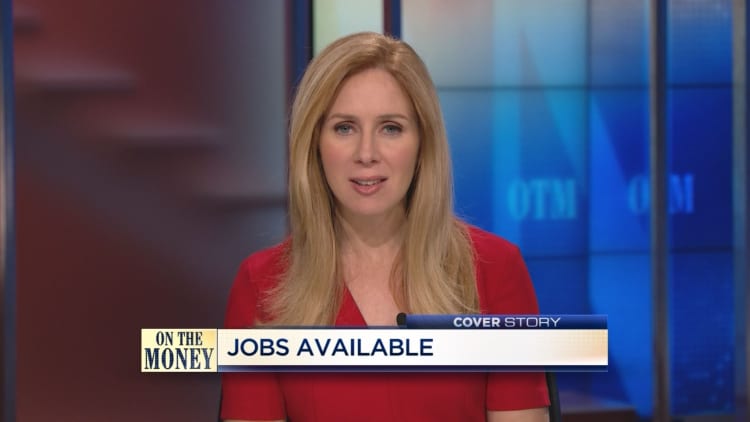
If you're looking for a job, the current market is the best it has been in years.
Last week, the government reported that the unemployment rate fell to 4.1 percent in October, with more than six million open jobs available right now.
According to the Labor Department, that's near the all-time high in July of this year when there were 6.2 million job openings. At the low point of the Great Recession in mid 2009, there were just 2.2 million jobs in July 2009.
In an economy that appears to be gathering momentum, exactly why are some workers being left on the sidelines?
"It's a diverse group. They're from all walks of life," Brookings Institution Fellow Martha Ross told CNBC's "On the Money" in a recent interview. Recently, Ross published a study on out-of-work Americans, along with her colleague, Natalie Holmes.
The study, focused on adults age 25 to 64, uncovered three key findings about this particular demographic. Among other things, Ross and Holmes found most of the unemployed have a combination of low education, limited work experience and English proficiency — enough to be a barrier to employment.
"More than half of them have at most a high school diploma," Ross told CNBC, "and this is at a time when jobs are increasingly requiring a college education."
The median age of the out-of- work population is 45, the report noted. Factors such as geographical location and age, made the results vary across the country.
The chronically unemployed "are disproportionately disadvantaged, and only about a quarter of them have worked in the past year," Ross said.
Although employers complain they can't find workers, Ross noted they could be limiting their pool of candidates by requiring an undergraduate college degree of all applicants.
For many jobs, she said, "a four year degree is not necessary. What is important is you have some kind of education beyond high school so that could be an apprenticeship, it could be a certification."
Ross added that employers have to try new ways to find and connect workers to jobs. "Given companies are having such hard time finding workers, they need to broaden their recruitment pools and think differently about who can be a good worker," she said.
Doing so requires "better collaboration between the demand side [employers] and the supply side," Ross stated, which represent workers. If employers can "be more specific and granular about skills needed, then teaching organizations could target training to meet employer needs," she added.
On the Money airs on CNBC Saturdays at 5:30 am ET, or check listings for air times in local markets.



